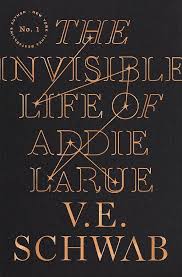Chapter XVII
byChapter XVII begins on the bustling streets of New York City on New Year’s Eve, 2013. Henry, caught in the whirlwind of a wild party at a Bed-Stuy apartment known as the Castle, finds himself overwhelmed by the chaos around him. The party is filled with loud conversations, flashing lights, and fleeting interactions, leaving Henry to feel more isolated than ever. Amidst this chaos, he steps outside to the fire escape, seeking solace in the cold, quiet night. The chill of the air contrasts sharply with the frenetic energy of the party inside, offering him a brief moment of introspection and relief. Standing there, Henry is struck by a deeper desire for genuine connection, far from the superficial encounters that seem to dominate his life. The city, alive with celebration, feels distant as he reflects on his own emotional isolation, pondering the relationships that feel just out of reach.
In his brief interaction with a stranger, whose name he can’t even recall—Mark, Max, or Malcolm—Henry is once again reminded of the emptiness of casual encounters. The stranger, attempting to make a connection, offers a fleeting moment of attention, but Henry recognizes the hollowness of their exchange almost instantly. He asks the man to stop advancing, not because he lacks desire, but because he longs for something deeper, something genuine that seems so elusive in the world around him. In a way, this encounter becomes a metaphor for Henry’s life—always surrounded by people, yet never truly seen or understood. His attempt to avoid the emptiness of this interaction is interrupted by Robbie, his host and part of his close-knit group of friends, which adds an unspoken tension to their dynamic. Robbie’s presence, though familiar, highlights an uncomfortable distance between them, as if their friendship is slipping through his fingers despite the history they share.
Seeking respite from the noise and confusion of the party, Henry retreats to the fire escape, a place of relative calm amidst the chaos. It is here that Bea, another close friend, joins him, climbing out into the cold night to sit by his side. Their quiet conversation opens a window into their relationship, revealing unspoken truths and vulnerabilities. Bea expresses her concern for Henry, sharing with him that Robbie harbors unreciprocated feelings for him, which adds complexity to their friendships. Although Bea offers kind words of affirmation about Henry’s worth, he struggles to accept them. His internal insecurities make it difficult for him to embrace the support that his friends offer, further deepening his sense of isolation. The disconnect between his perception of himself and how Bea sees him reflects his ongoing struggle with self-identity and acceptance. Despite Bea’s sincere attempts to reassure him, Henry is caught in the painful realization that his sense of self-worth is not aligned with the love and acceptance he receives from others.
As their conversation shifts, they begin to discuss the concept of exchanging one’s soul for happiness or love. Henry, vulnerable in this moment, confesses his deepest wish: to be loved. His admission underscores the central conflict of his character—his deep yearning for connection, but the realization that love, when not freely given, can feel inauthentic. Bea listens, understanding the weight of his words, but there is a tension in the air, a subtle shift in their dynamic. Bea decides to return to the party, leaving Henry alone with his thoughts. She offers a customary kiss before heading back, a simple act of affection that would typically symbolize the joy of the moment. However, for Henry, the kiss only deepens the ache in his chest as he questions his choices, the paths he’s taken, and the relationships that remain elusive. The night, filled with excitement for everyone else, leaves him contemplating what it all means for him. Despite the festivities around him, he is left questioning his own worth and the choices he’s made that have led him here, in this moment of emotional turmoil.
This chapter masterfully explores the themes of loneliness, self-discovery, and the human yearning for genuine connection. It examines the struggle between what Henry perceives about himself and how he is seen by those around him. The overwhelming desire for love, acceptance, and a sense of belonging contrasts with the emotional walls Henry has built over time. His internal battle between accepting affection and rejecting it, driven by deep insecurities, illustrates the complexity of his character. The chapter also delves into the fleeting nature of relationships in a world where everything feels temporary. The transient nature of New Year’s Eve celebrations serves as a poignant backdrop for Henry’s search for meaning in his relationships. This sense of impermanence amplifies the depth of his existential doubt and yearning for something real and lasting. Through these emotional struggles, the chapter paints a vivid picture of youthful yearning and the elusive nature of happiness and love in a world full of fleeting connections.


